When Command Sgt. Maj. David Davenport became the senior enlisted soldier for Training and Doctrine Command, he was tasked with improving the way the Army trains, educates and develops soldiers.
In the three years since, he has helped lead the way as the Army overhauled noncommissioned officer education, added more rigor to Army school coursework, worked to give soldiers credit for the training they receive, replaced the much-hated Structured Self-Development modules, and put renewed emphasis on physical fitness.
On Friday, Davenport hands over his responsibilities as TRADOC’s top NCO to Command Sgt. Maj. Timothy Guden.
Davenport is scheduled to retire Nov. 1, after more than 35 years in uniform.
But the work he put into motion at TRADOC will continue to impact soldiers for years to come, as the Army prepares for the battlefield of the future.
“At the end of the day, what I was advocating for, throughout my time in TRADOC, is that TRADOC should be producing the finest, fittest, most well-trained soldiers,” Davenport said in an interview with Army Times. “We have them for a period of time, and we need to make sure we’re challenging them so they can make an impact when they get back to their organizations.”
As he transitions, Davenport said he would like to see the Army continue to invest in leader development for soldiers.
“If you really want to talk about readiness and the cost of doing business, the best investment you can make is in leader development,” he said.
Developing smart, agile and adaptive leaders will be even more crucial in the future, as Army leaders have repeatedly predicted a battlefield that will rely heavily on small units operating independently across large spaces or congested cities.
Retired Gen. David Perkins, who led TRADOC for most of Davenport’s tenure, understood that, Davenport said.
“I remember sitting around with Gen. Perkins as he was drawing on a dry erase board about the multidomain [battle] concept,” Davenport said. “I said, ‘We have to look at how to train leaders differently,’ and he said, ‘yup,’ and that was my charge.”
In all, TRADOC came up with 45 initiatives to meet that charge, Davenport said, “and we got through most of them.”
Some highlights include:
School before promotion
One of the key initiatives was STEP, or select, train, educate, promote, which requires soldiers to complete the appropriate level of NCO education before they can be promoted to the next rank.
“I am quite surprised at the impact that we’ve had in the last three years in bringing about this change,” Davenport said. “It wasn’t just work to be busy. It produced tangible results.”
Through STEP, soldiers are taught in an academic environment “the proper ways of taking care of their soldiers, training their soldiers, leading their soldiers, so they really get a foundation based on knowledge and education,” Davenport said.
“What I wanted to do was I wanted to really challenge the soldier,” he said. “You don’t want to go to school and think that it was a waste of time, you didn’t learn anything new, or you just checked the block.”
RELATED
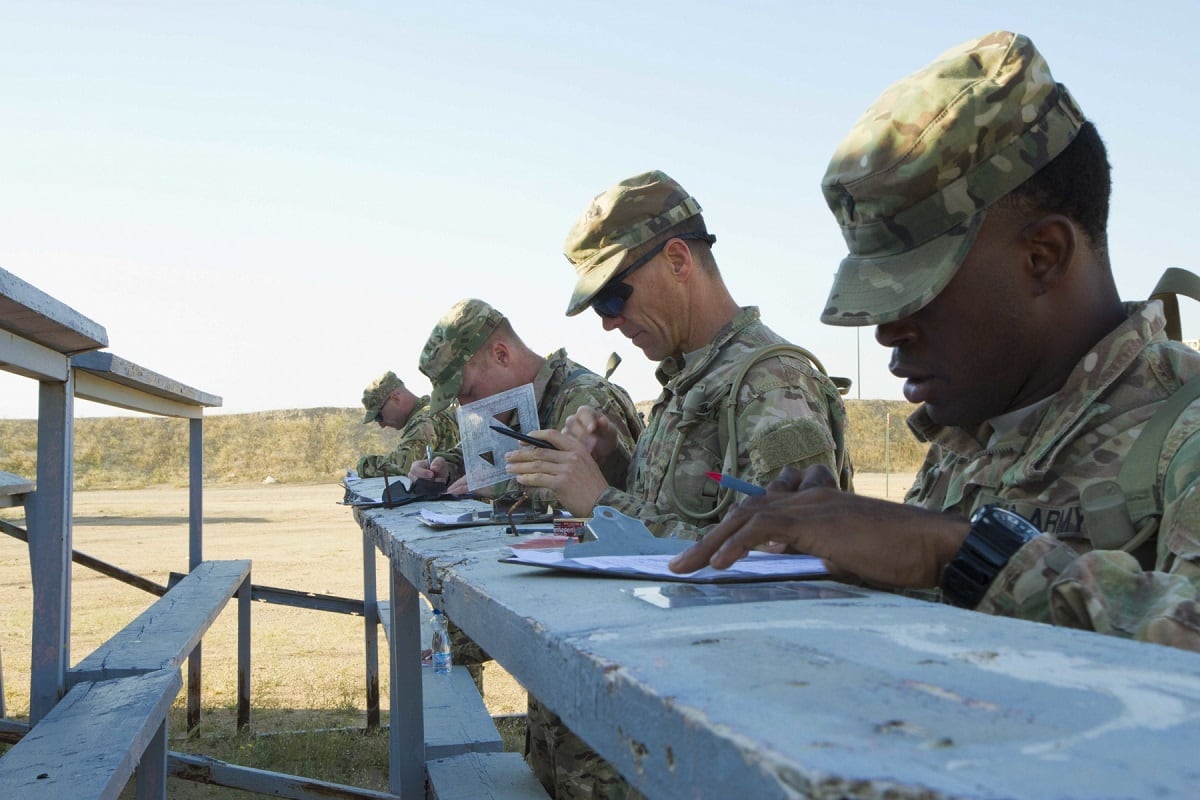
Listening to soldiers
Part of making that work was actively listening to soldiers, Davenport said.
This included conducting several town hall meetings that were broadcast online, maintaining a blog, and corresponding directly with individual soldiers who had questions or problems.
As a private, Davenport “was always asking questions, I was very curious,” he said.
But one of his first squad leaders never really took the time to formally counsel or talk to his soldiers about their strengths or weaknesses or hear them out, Davenport said.
That experience spurred Davenport to always take the time to explain why the Army was requiring soldiers to do something.
“I will dedicate time to make sure that they understand — not agree — but understand what I was trying to convey to them,” Davenport said. “For young soldiers, I always wanted them to know that they had someone that they could turn to and just ask things, that they didn’t need to be fearful.”
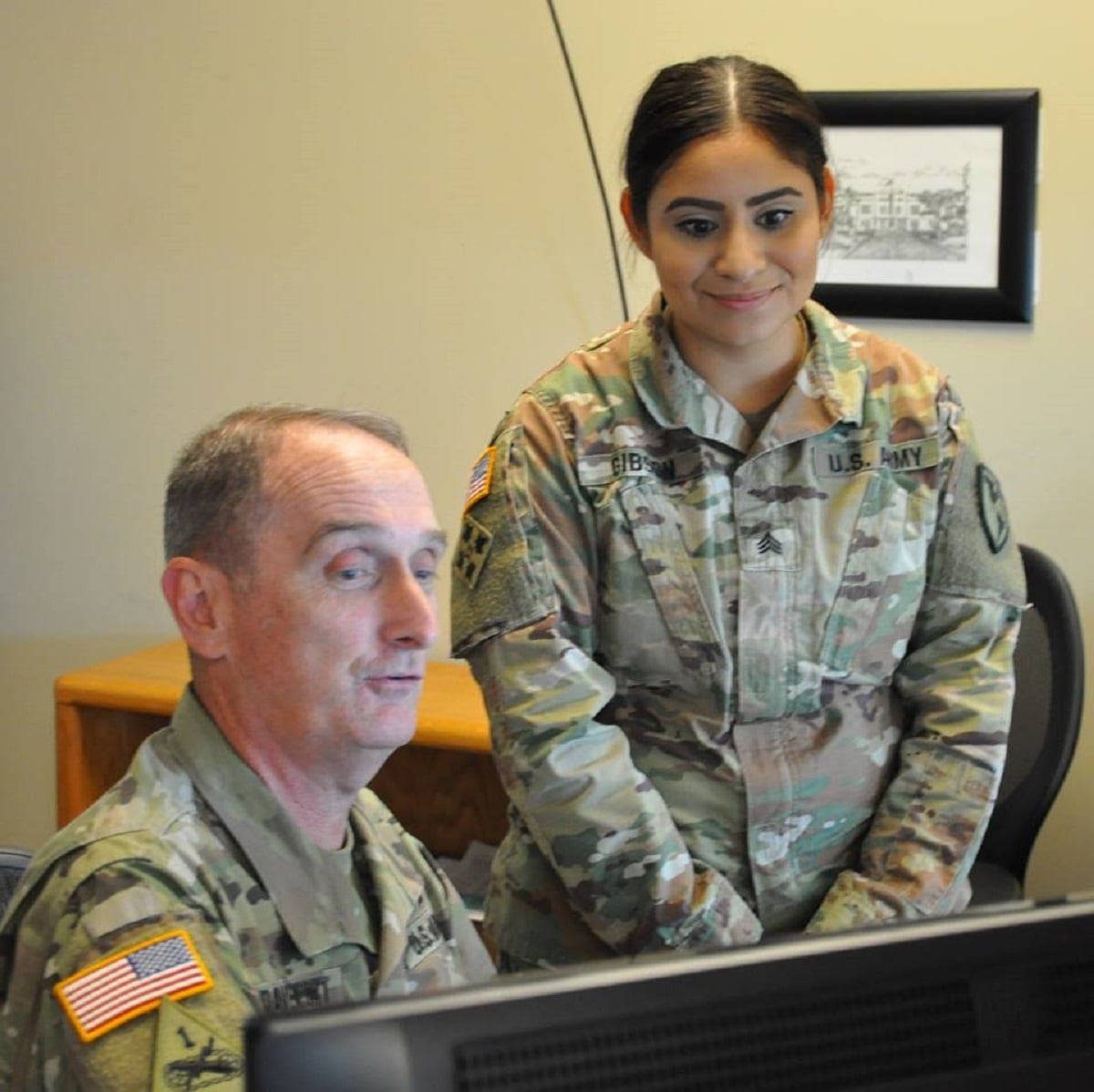
Soldiers responded to Davenport’s style — something he learned after conducting the first of his town hall meetings.
“When I first came up with the idea, I didn’t think anyone thought it would be as well received as it was,” he said. “But it was, so much so that when we stopped doing it, I got emails asking why. It’s just a desire of soldiers wanting to hear open, honest feedback to their questions.”
No more SSDs
One message Davenport received loud and clear from soldiers was their disdain for Structured Self-Development, which every soldier must complete before attending a resident professional military education course.
TRADOC took that feedback and is replacing SSD with the Distributed Leader Course, which takes soldiers on a sort of “choose your own adventure” track, is no more than 40 hours, and can be viewed on smartphones and tablets.
Every decision soldiers make, as they move through the different online scenarios, is graded and evaluated.
A DLC 1 pilot is now underway with 60 soldiers at Fort Bliss, Texas, and TRADOC is seeking feedback from the soldiers who are testing it.
“What’s important to me is hearing from the soldiers so we make sure it has value,” Davenport said.
There are five levels of DCL in all. DLC 2 is expected to be delivered in September, Davenport said, and a new level of DLC will be released every three months after that.
RELATED
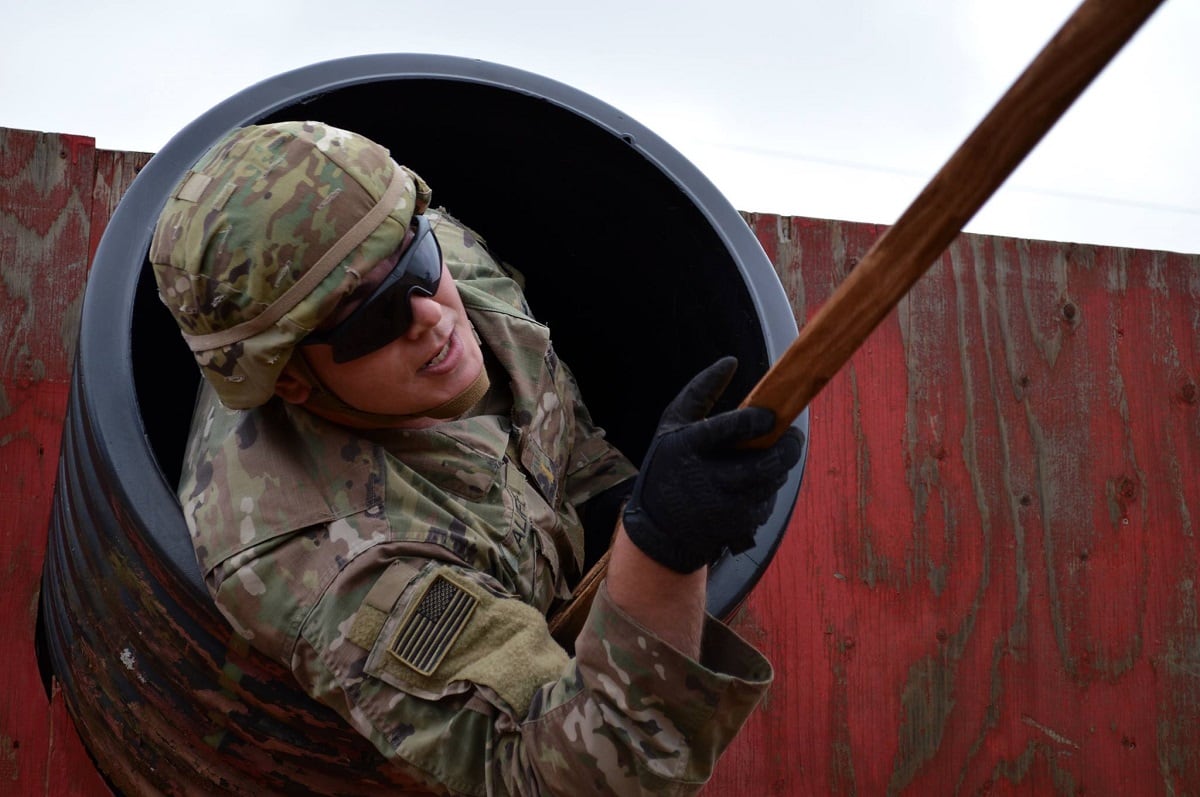
A new Basic Leader Course
The Army also is overhauling its Basic Leader Course, required for soldiers seeking to make sergeant. One major update is reinforcing to NCOs how to train their soldiers in individual or squad-collective tasks, Davenport said.
“We’re going to mix up the classes so the students get more of an experience in developing a network and do some team building,” he said.
The pilot tests for the new BLC — which will still be 22 days long — are completed, and the new course will be rolled out to the Army’s NCO Academies in the August timeframe, Davenport said.
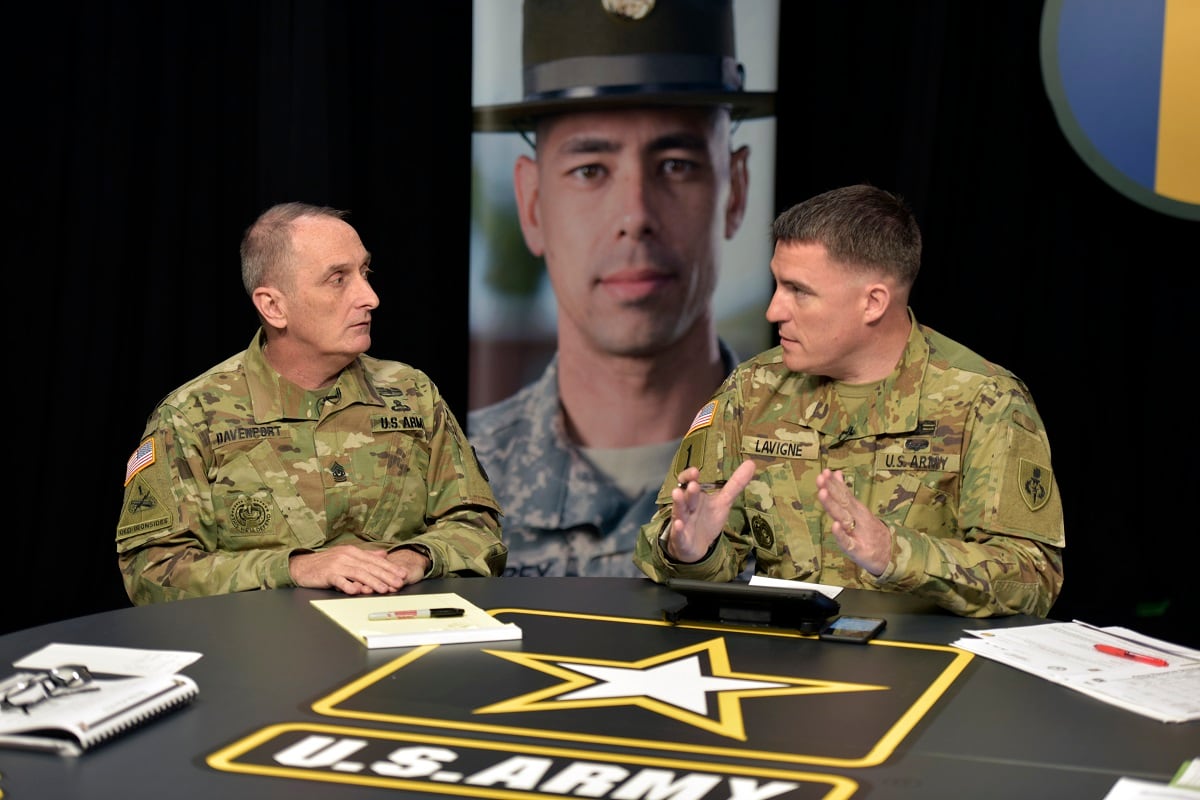
Grades for every soldier
Each soldier’s performance in school also is being evaluated.
“We want to make sure we’re measuring soldiers’ performance in the classroom, so the [promotion] board can see it,” Davenport said.
Each level of Army professional military education will now include an Academic Evaluation Report, which “puts weight on educational outcomes in PME rather than you [just] went,” Davenport said.
The Academic Evaluation Report will include the soldier’s grand-point average, Army Physical Fitness Test data, height and weight, and notes on whether the soldier has the potential to be an instructor, their writing skills and their leadership style.
The report helps the Army “stress the importance of learning,” all the way from aspiring NCOs to those nominative sergeants major who are preparing to work for general officers, Davenport said.
“They have to do the exact same thing as a soldier in [the Basic Leader Course],” he said about the senior NCOs.
As a result, the Army is trying to get soldiers more recognition for the education they complete, including making sure soldiers who complete PME can receive educational credits that lead to a civilian degree, he said.
RELATED
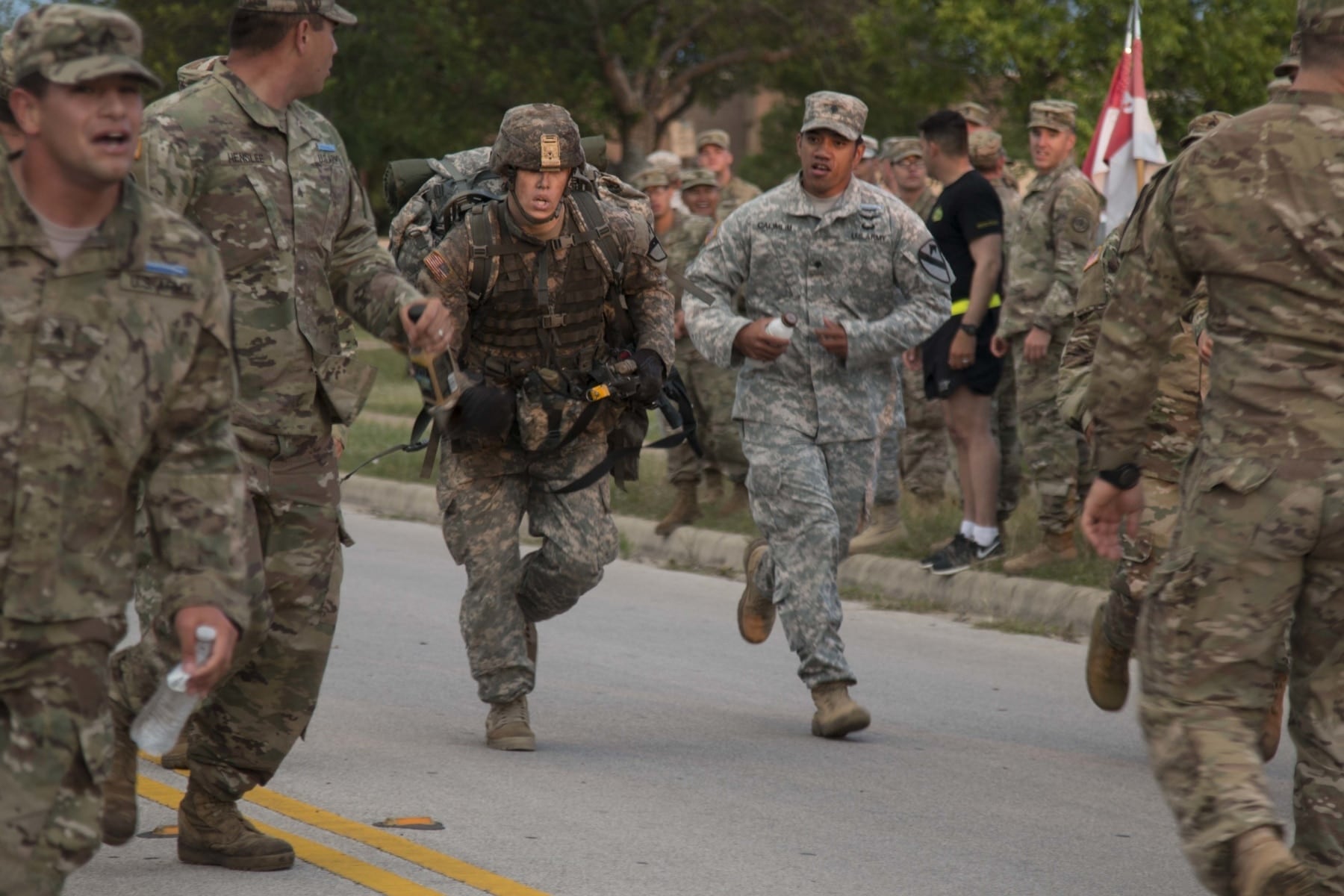
Making a difference
As he prepares to leave, Davenport credits the team of people around him for all the progress TRADOC has made for soldiers. He also credited Perkins and Sergeant Major of the Army Dan Dailey, who was TRADOC’s senior enlisted soldier before becoming SMA.
“I didn’t do any of this by myself,” Davenport said.
In his conversations with his successor, Davenport said he has shared just one piece of advice.
“I’ve shared with him that I think what you really have to focus on is the betterment of our Army, to make sure that when you speak, that it’s not about you,” he said. “All I’ve tried to do, and all I’ve tried to encourage him to do, is make our Army better during his period of service — and that’s all I’ve tried to do.”
Michelle Tan is the editor of Army Times and Air Force Times. She has covered the military for Military Times since 2005, and has embedded with U.S. troops in Iraq, Afghanistan, Kuwait, Haiti, Gabon and the Horn of Africa.





